China not backing down amid new clash with NATO
Lianhe Zaobao associate editor Han Yong Hong notes that NATO’s recent criticism of China has further strained relations, with China not holding back either.
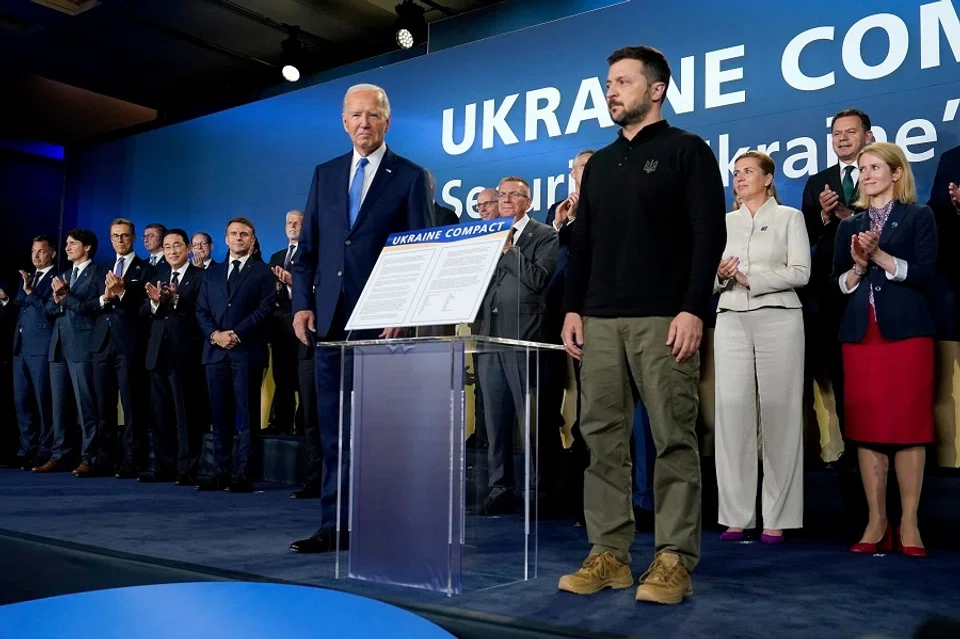
This week, the US-led North Atlantic Treaty Organization (NATO) held its three-day 75th anniversary summit in Washington. Besides heavily criticising Russia and firmly reiterating its unwavering support for Ukraine, the 32 NATO member countries jointly issued the Washington Summit Declaration on 10 July, which clearly lambasted China for being “a decisive enabler of Russia’s war against Ukraine”, and declared that China would pay the price for this.
Decades of strained relations
China was quick to retaliate, censuring NATO for scaremongering about the Asia-Pacific, being rooted in a Cold War mentality and spouting belligerent rhetoric, and asserting that the paragraph of the Washington Summit Declaration on China contained a load of biases, smears and provocations.
China’s foreign ministry also accused NATO of being “a vestige of the Cold War and a product of bloc confrontation and bloc politics” and stressed that “wherever NATO shows up, turmoil and chaos will follow”.
From the perspective of Western media, although NATO and China do not share a close relationship, there is not much disagreement between the two. But in fact, China has held a grudge against NATO for more than 20 years.
In 1999, NATO’s US-guided bombs hit China’s embassy in Belgrade, killing three Chinese journalists. The incident ignited a strong wave of patriotism in China, with some Chinese youths considering it a mark of “awakening”, believing that NATO owes China a blood debt.
When China-US relations are harmonious, this historical episode is not mentioned; in recent years, with tensions in China-US relations, this longstanding grievance has resurfaced.
In May of this year, on the 25th anniversary of the bombing of the embassy, Chinese President Xi Jinping mentioned the names of the three journalists who died in the incident in a signed article published in local media during his visit to Serbia, emphasising that “we must not forget”.
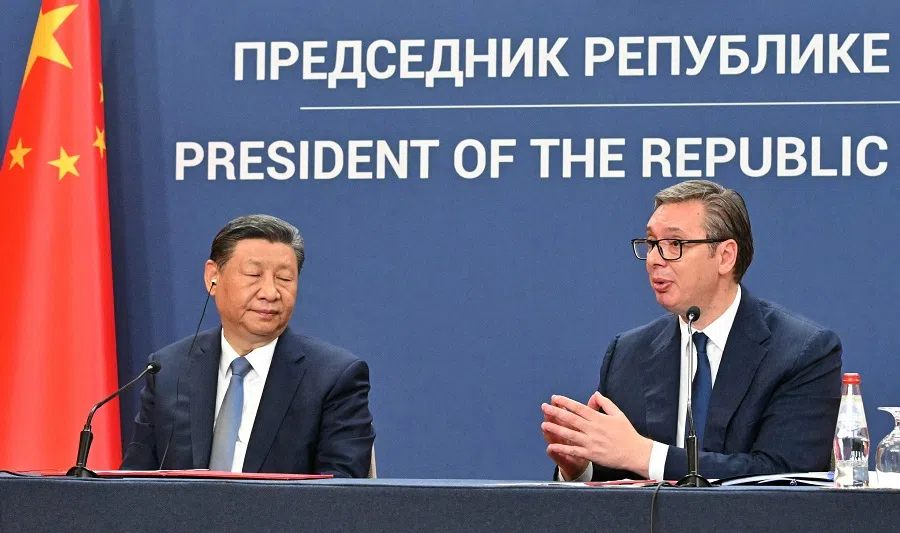
It has become increasingly clear over recent years that NATO considers China a current and immediate challenge, not a distant threat. In 2019, the NATO Summit recognised for the first time the “challenges” posed by China.
After the outbreak of the Russia-Ukraine war, in its 2022 Strategic Concept documents, NATO escalated its view of China as posing “systemic challenges”. Now, it sees China as a “decisive enabler” in Russia’s war against Ukraine.
This is the first time it [NATO] is joining Washington in censuring China, which is not only a sign of US diplomatic victory, but also means that the intelligence gathered by the US has convinced Europe.
China not backing down
The strong language by NATO has largely caught observers by surprise, leading them to believe that this is a major shift in NATO’s attitude towards China.
As Germany and other European countries view China as an important market, NATO has always held back in its criticism of China. This is the first time it is joining Washington in censuring China, which is not only a sign of US diplomatic victory, but also means that the intelligence gathered by the US has convinced Europe.
The Washington Summit Declaration issued on 10 July pointed out that through its “no limits” partnership with Russia, China has provided “large-scale support” for Russia’s defence industrial base, becoming a “decisive enabler” and elevating the threat Russia poses to Euro-Atlantic security.
NATO demanded China to “cease all material and political support to Russia’s war effort” and stop the transfer of dual-use materials such as weapons components. The bloc further threatened that China “cannot enable the largest war in Europe in recent history without this negatively impacting its interests and reputation”.
What is meant by “negative impact”? The declaration did not expound on this, but it clearly portends economic or trade sanctions. During the 2024 NATO Public Forum in Washington, US Secretary of State Antony Blinken directly stated that sanctions were a possibility.
China’s strong response showed that it was “not at all daunted”, reflecting how China did not hold much hope in improving relations with the US and Europe.
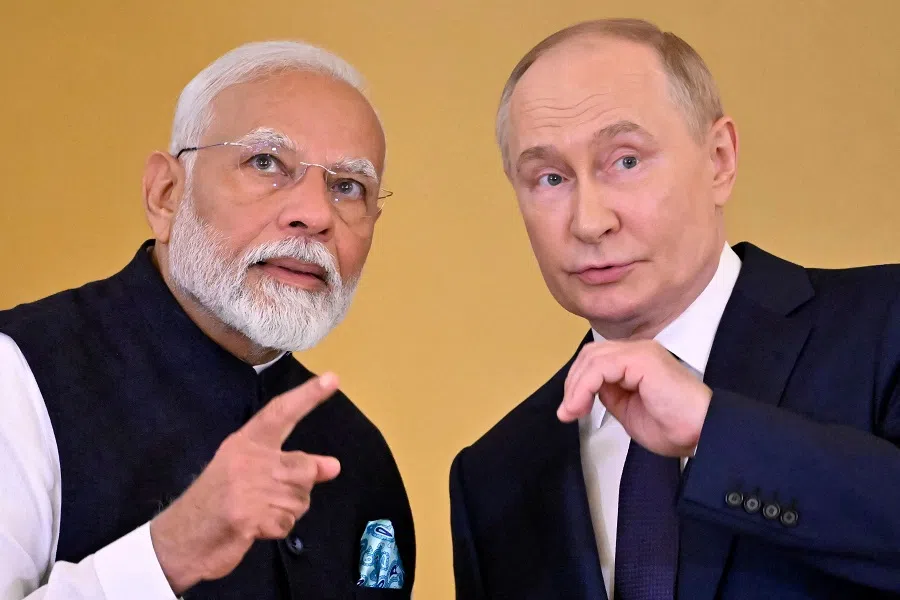
Blinken explained that for Beijing to continue to fuel Russia’s defence industrial base is unacceptable, and hence, actions that follow could include sanctions as well as denying improvements to relations that Beijing might seek to improve.
China’s strong response showed that it was “not at all daunted”, reflecting how China did not hold much hope in improving relations with the US and Europe.
During the NATO summit, China and Belarus held joint military exercises near the east of NATO. The China-Belarus “Eagle Assault 2024” kicked off on 8 July, with the drills focused on counterterrorism, hostage rescue and more; but its show of strength towards NATO is clear.
A few days before the NATO summit, the leaders and representatives of the ten member countries of the Shanghai Cooperation Organisation (SCO) held a meeting in Kazakhstan on 4 July. The proximity of the dates for the two summits caught the attention of Europe, especially given the fact that US Independence Day was also on 4th July.
Perhaps because India was aware that this was a show of direct contention between China and NATO, Prime Minister Narendra Modi skipped the SCO summit and instead visited Russia. This also highlighted that it would not be smooth sailing for China to use the SCO to counter NATO.
Hampered diplomatic options
The Russia-Ukraine war has been ongoing for more than two years, and coupled with the constantly intensifying China-US competition and antagonism, China’s relations with the Western world has continued to deteriorate.
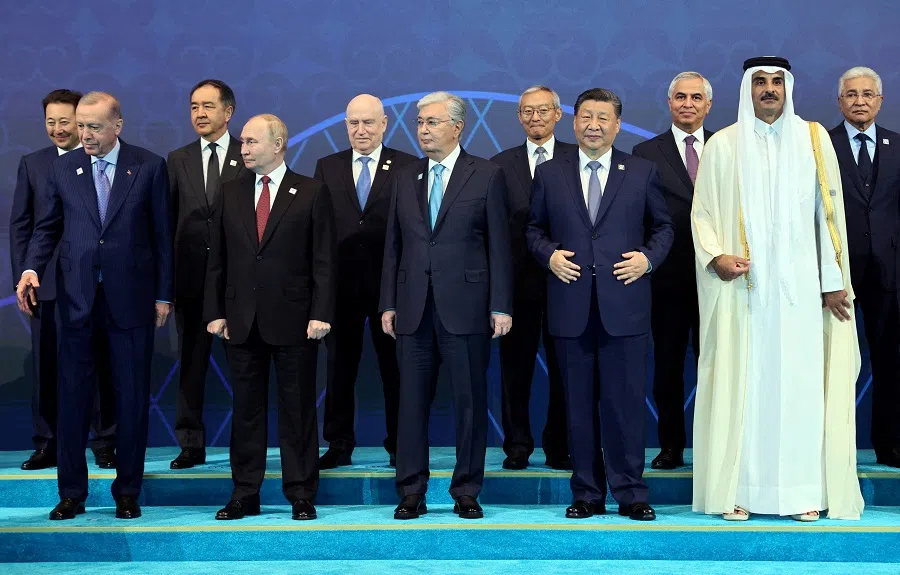
History might remember NATO’s 75th anniversary summit as a watershed moment, representing another step in the ideological divide of US-led “democracy against authoritarianism”.
However, while leaders of Asian countries South Korea, Japan and New Zealand have attended the NATO summit for three consecutive years, Australia only sent its deputy prime minister — Asia-Pacific countries clearly still have their reservations about NATO’s eastward expansion.
... neither the Eastern nor Western camps have come up with a unanimous position or base interests. For some Western countries, their diplomatic options are hampered as they face difficult internal issues.
The US is currently making another attempt to draw the support of a unified Europe, while the concept of a “China-Russia-Belarus axis” has surfaced in Europe. But it is hard to say how long the US-Europe unity would last.
Ultimately, the US elections in November would be the key factor determining whether the US would be successful in its China containment strategy. It is still up in the air as to whether incumbent US President Joe Biden would stay in the electoral race. On the flip side, if Donald Trump were to assume office, the US’s attitude towards its allies would change again.
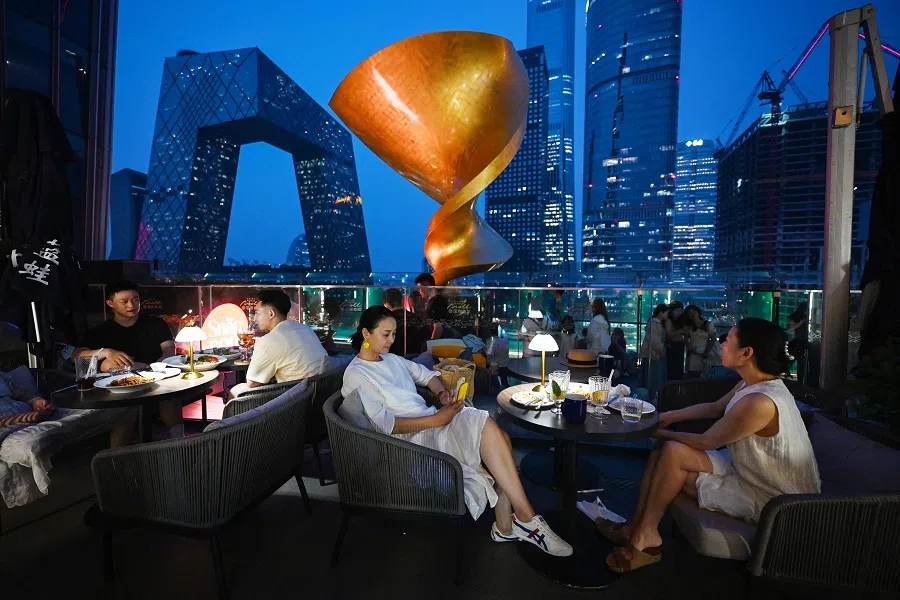
All in all, neither the Eastern nor Western camps have come up with a unanimous position or base interests. For some Western countries, their diplomatic options are hampered as they face difficult internal issues.
Regardless, from a macro view, China and NATO are already in an openly contentious relationship, and China is drifting further and further away from Europe. This state of affairs is expected to persist.
This article was first published in Lianhe Zaobao as “中国硬杠北约”.





